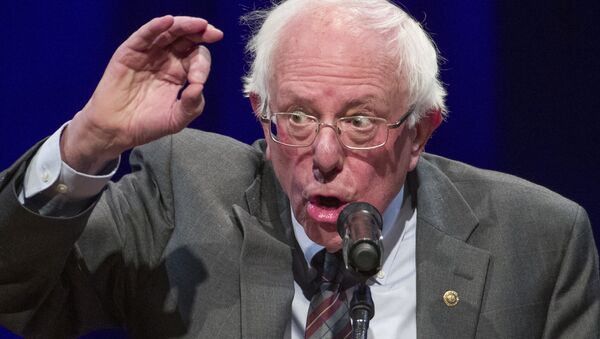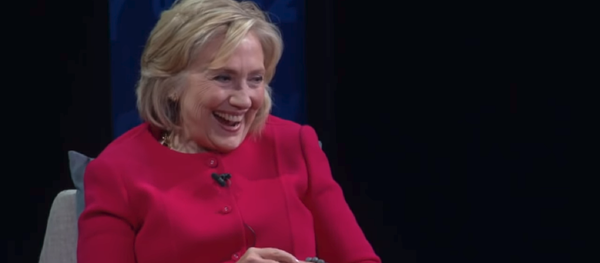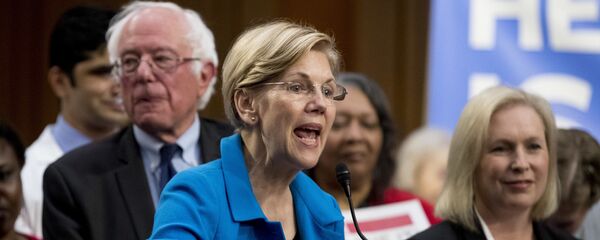"I wanted to let the people of the state of Vermont know about this first," Sanders told Vermont Public Radio's Bob Kinzel Tuesday. "And what I promise to do is, as I go around the country, is to take the values that all of us in Vermont are proud of — a belief in justice, in community, in grassroots politics, in town meetings — that's what I'm going to carry all over this country."
In January, the New York Times published an article citing allegations by Sanders' former campaign staffers that the campaign didn't adequately address incidents of sexual harassment, sexist mistreatment and payment disparities between men and women.
"I am not going to sit here and tell you that we did everything right in terms of human resources, in terms of addressing the needs that I'm hearing from now: that women felt they were disrespected, that there was sexual harassment which was not dealt with as effectively as possible," Sanders said on CNN following the publication of the New York Times article.
He also added that his 2018 Senate re-election campaign already established new protocols for tackling sexual harassment allegations.
"We put forward the strongest set of principles in terms of mandatory training, in terms of women, if they felt harassed, having an independent firm that they can go to," Sanders said. "And I think that that's kind of the gold standard of what we should be doing."
However, the harassment allegations surrounding Sanders' former campaign may still prevent him from getting women and minority votes this time around too.
"While it is true that this [sexual harassment and sexual violence] is part of, unfortunately, campaign life and politics in general, when you're talking about building a revolutionary space, these types of issues are disheartening to hear about," Changa told hosts John Kiriakou and Brian Becker.
In an interview with the New York Times published July 2015, Sanders also admitted to having an issue getting minority votes due to his lack of engagement with black and Latino communities during his campaign.
"I'm not well known in the African-American community, despite a lifelong record," he said at the time. "That's a real issue, and I have to deal with it."
"What I want to see… has the valid critique and the criticisms had been digested by the Bernie apparatus. Are we going to see more diversification in senior leadership, not just in terms of gender and racial diversity, but also [in terms of] sexual orientation?" Changa asked.
In an interview with SiriusXM's "Make It Plain with Mark Thompson" on Tuesday, Sanders seemed confident that his campaign's message will "resonate" with African Americans.
"I think we have a message that is going to resonate, resonate all over this country, and in the African-American communities," Sanders said. "It's going to be a message which says we've got to end institutional racism, we've got to pay special attention to those people who have been hard hit economically, we have to invest in urban communities, and we have to deal with all of the massive disparities that currently exist in American society."




